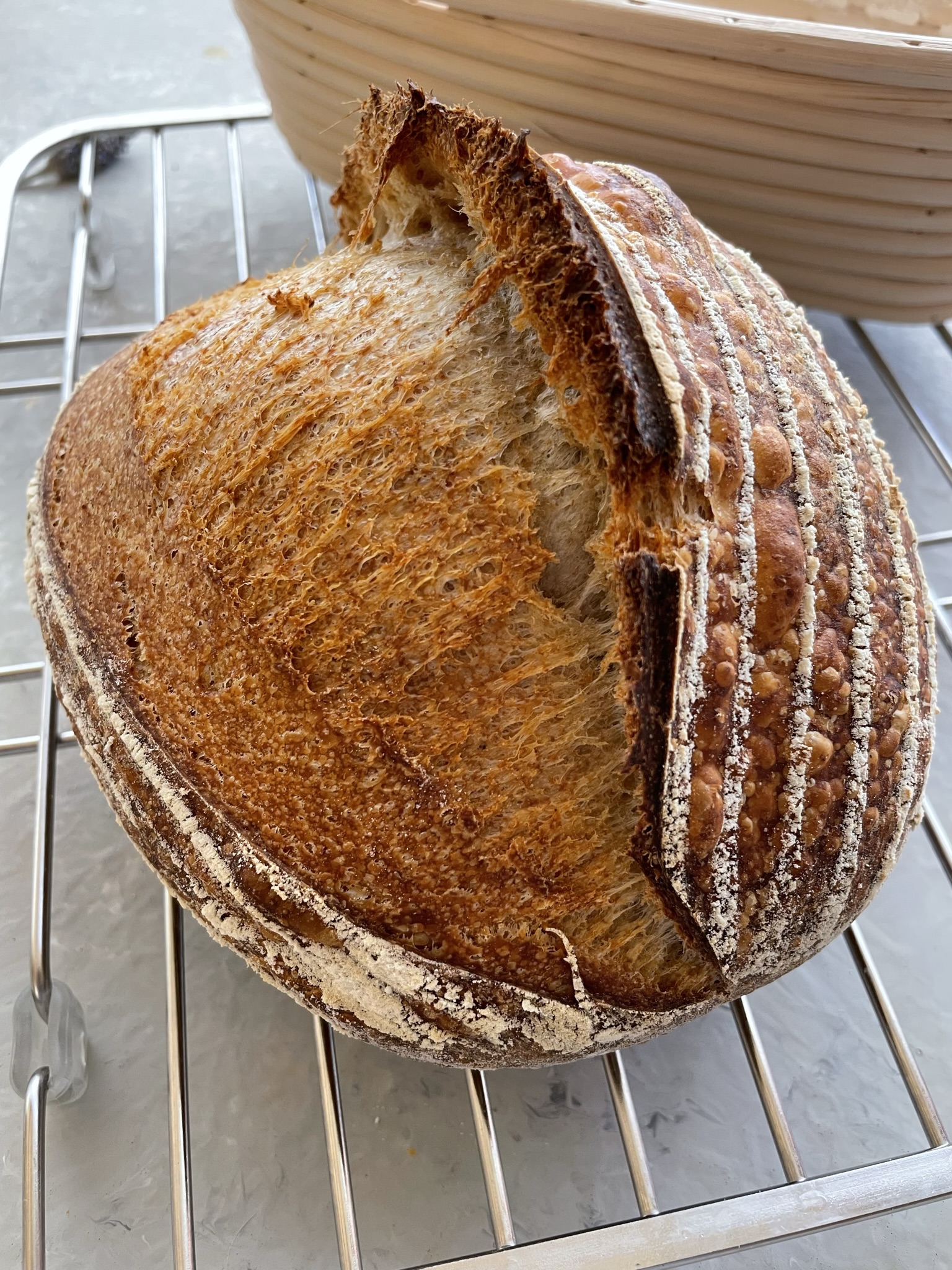This sourdough glossary will help you understand some of the terminology used
Basics of Sourdough
Basics of Sourdough
Click to edit menu description
Many people think that scoring your sourdough is just for aesthetic purposes. I used to love watching Instagram and Facebook reels of the intricacies that were involved in creating beautiful loaves. However, there is definitely a reason for scoring sourdough. Sourdough is baked in a very hot cast iron Dutch oven, about 100 degrees Fahrenheit (38 degrees C) hotter than regular bread baking. This intense heat creates oven spring which is the rise of the bread dough. If the bread is not scored, there is no area of least resistance where the bread dough can expand quickly in a controlled manner, creating haphazard "cracks". By scoring the sourdough, the bread is allowed to expand along the score, creating a neat line where the expansion will occur. It is along the score line where the ear of the bread will develop.
When the dough is cold, it is easier to work with. Cold proof the sourdough dough that's in the banneton in the refrigerator for 48 hours (recommended). This cold proofing has by far been the best outcome for me. When scoring the dough, it is best to use a very sharp lame, razor blade, knife or pair of scissors in a pinch!
When scoring, angle the lame to a 45 degree angle and make one deft motion, making an angled 1/2" (1 1/4 cm) incision. The angled incision helps create a prominent ear on the sourdough crust. Sourdough bread with a prominent ear, does not affect the taste, but the expansion allows the bread to be less dense!

Baked bread
The blistering on the surface of the bread is also characteristic of sourdough breads. In the world of sourdough, some people think that blisters are a sign of a good sourdough loaf, while others don't. Blisters on the loaf are caused by the carbon dioxide in the dough that develop as a result of a long, cold proof. Upon baking, the carbon dioxide expands on the surface of the bread, but due to the quick crust devlopment caused by the intense heat of the environment, the carbon dioxide cannot escape resulting in the blisters.
This sourdough glossary will help you understand some of the terminology used
Here are some essential utensils and tools for sourdough baking. These basic
Baker's percentages and hydration percentages are two math concepts that are helpful
Environment It took me a while to figure out how my environment
Making GOOD and healthy sourdough bread is a labor of love. It
Many people think that scoring your sourdough is just for aesthetic purposes.